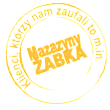Training for railway cranes
Become a railway crane operator
Railway cranes are subject to technical supervision, so if you want to become an operator or maintainer you must have the relevant UDT licence.
The "ERGON" training centre provides training for operators and maintainers of equipment subject to the Office of Technical Inspection. If you enrol on our course, we will enable you to obtain a qualification certificate entitling you to work with railway cranes. We have a highly qualified team of specialists who will provide theoretical and practical training.
Our training programme
Our training programme is characterised by a high level of teaching and we have thousands of satisfied customers. The main topics discussed during the course include:
- information on technical supervision,
- health and safety regulations,
- proper maintenance of the equipment,
- the duties and rights of the conservator and operator,
- crane operation,
- how to deal with emergencies,
- machine design,
- proper inspection of the crane's technical condition,
- how to work properly as a crane operator and maintainer.
The lectures will be followed by practical classes, during which the trainee will be trained to work with the crane and will perform tasks under the supervision of our specialists. The classes are designed to prepare the participant to pass the UDT exam and work with the equipment.
How do you get your licence?
If you want to obtain a railway crane qualification, you need to prepare properly for the state examination before a commission appointed by the UDT. During the course, the person wishing to obtain the qualification must acquire the necessary knowledge to start working with the crane. After completing the course, the trainee takes the UDT exam, which consists of 2 parts. Part 1 is aimed at theoretical knowledge. Part 2 is aimed at demonstrating the practical skills acquired in front of a commission appointed by the UDT.
If you successfully pass both tests, you will receive a document confirming the qualifications you have acquired. The qualification is valid for a period of 5 years from the date of receipt, but it is possible to extend the expiry date. Before the certificate expires, an application must be submitted (no later than 3 months before the expiry date). In order for the application to be successful, it is necessary to have worked for 3 years after receiving the document.
What are railway cranes?
Railway cranes are classified as cranes, they are used on construction sites and their tasks include integrating and moving reinforced concrete and steel constructions of heavy weight.
Long booms with beaks are mounted on the crane to help with installation and hall work. In the construction industry, cranes with a lifting capacity of 15 tonnes to 25 tonnes are used. The situation is different for railway emergencies, namely here the lifting capacity of a railway crane is more than 75 tonnes. Unlike other equipment with a similar type of wheel drive, rail cranes can be distinguished by the fact that they have their own drive in their design and also have extensive provision. Namely, they have a buffer coupling device and brakes, similar equipment other railway vehicles have.
What are the requirements to start the course?
If you want to sign up for training, you need to meet requirements such as:
- at least 18 years of age,
- provide a medical certificate of no contraindication,
- have a minimum of primary education.
Other courses
We also run other courses for operators and maintainers, these include training for:
- forklift trucks,
- telescopic handlers,
- cranes,
- mobile platforms,
- all types of cranes,
- winches and hoists.
If you are interested in our training offer, please do not hesitate to contact us.
Questions and answers
What are railway cranes?
Railway cranes are cranes that are used to consolidate and move steel and reinforced concrete structures of considerable weight.
Who can start a course on railway cranes?
This course is open to persons who: 18 years of age or older, have a medical certificate of fitness for this work and persons with at least a basic education.

































